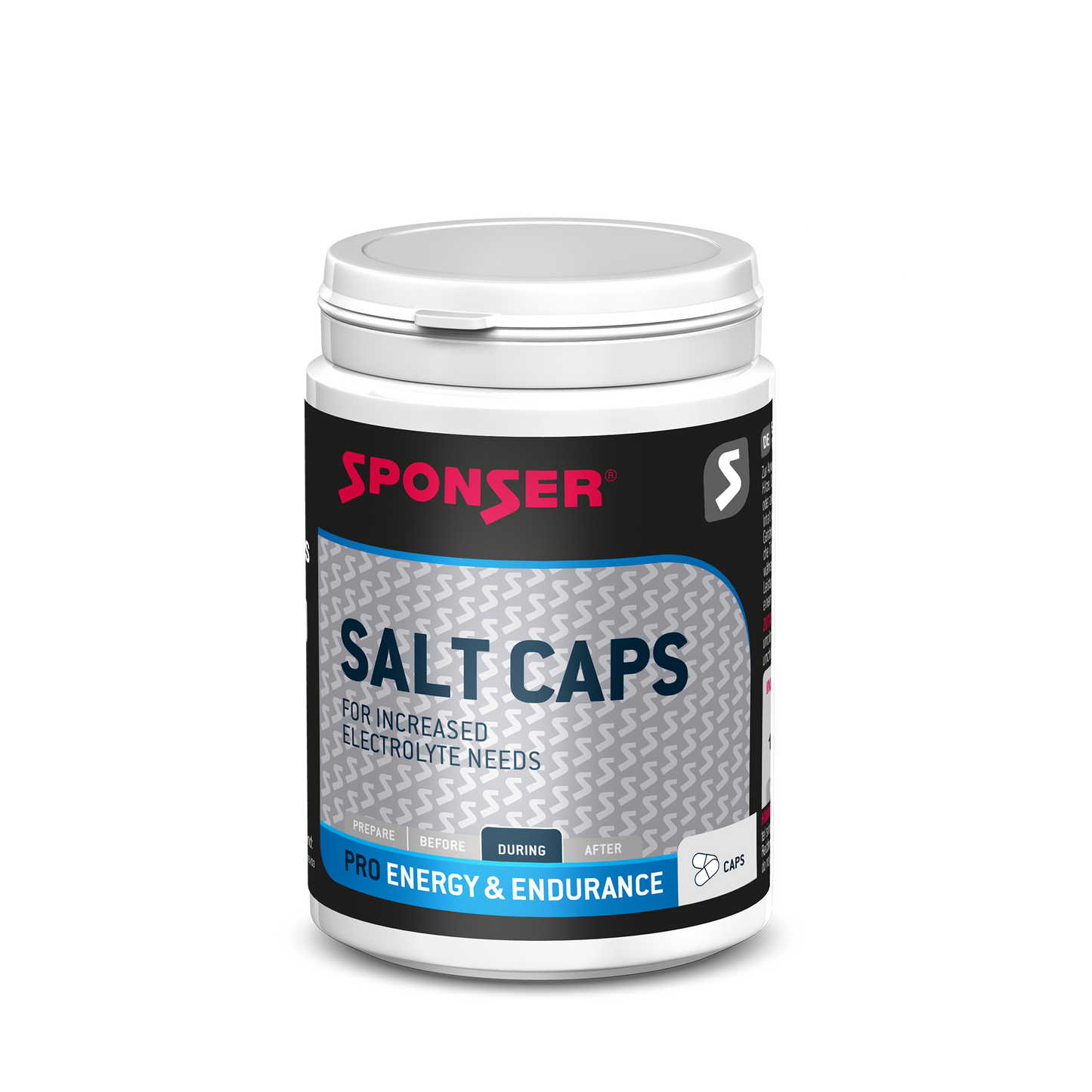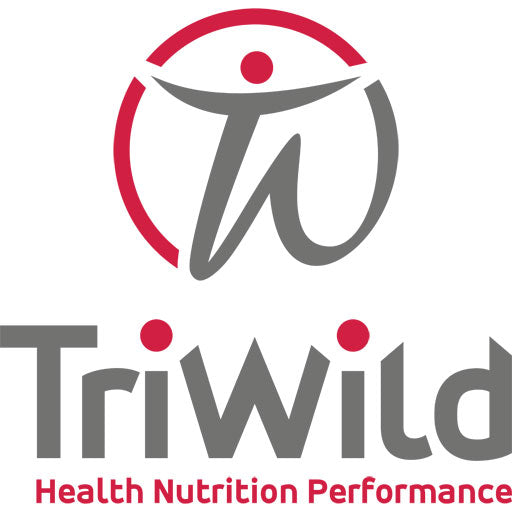
INFO
Electrolyte mixture for use during longer endurance performances, multi-day races, and in hot weather. Two Salt Caps capsules combined with water are suitable as an energy-free electrolyte drink for fasted training to modulate fat metabolism. Salt Caps can be combined with carbohydrates to create a homemade sports drink. Carbohydrate-electrolyte solutions improve water absorption during physical exercise and contribute to endurance performance during prolonged endurance exercise. Zinc contributes to normal fatty acid metabolism.
This product is vegan.
APPLICATION
During prolonged physical activity in hot weather, consume 1 serving per hour with sufficient fluid (0.4-0.8 liters/hour). Consider the sodium content of other beverages and foods consumed at the same time.
NUTRITIONAL VALUES
|
1 serving = 2 capsules |
6 capsules** |
|||
|
sodium |
400 mg |
-- |
1200 mg |
-- |
|
magnesium |
20 mg |
5%* |
60 mg |
15%* |
|
Calcium |
40 mg |
5%* |
120 mg |
15%* |
|
potassium |
100 mg |
5%* |
300 mg |
15%* |
|
zinc |
1.6 mg |
16%* |
4.8 mg |
48%* |
*NRV, nutrient reference values
**Daily ration
INGREDIENTS
Sodium chloride, vegetable capsule (E1204), calcium citrate, sodium citrate, potassium citrate, magnesium citrate, potassium chloride, zinc gluconate, anti-caking agent magnesium stearate.
Developed and manufactured in Switzerland
Keep out of reach of children.
Why should you care about fluid and salt loss?
So that you can maintain your performance for several hours
To regenerate optimally
To develop an individual catering strategy
Therefore, you should know your salt or sodium loss
The composition of sweat varies from athlete to athlete. The sodium content varies between 200 mg/l and 2300 mg/l of sweat. Sweat consists of 99% water and primarily serves thermoregulation. Sodium is the most important electrolyte and main component in sweat.
Disclaimer:
Sports physiology is constantly gaining new insights, allowing for an increasingly individualized assessment of a wide range of influencing factors. SPONSER® considers the rapid progress in measuring individual sweat and salt loss to be a relevant topic for sports nutrition due to the highly individual variations. Such a measurement can be an interesting and potentially performance-enhancing tool for competitive athletes.

